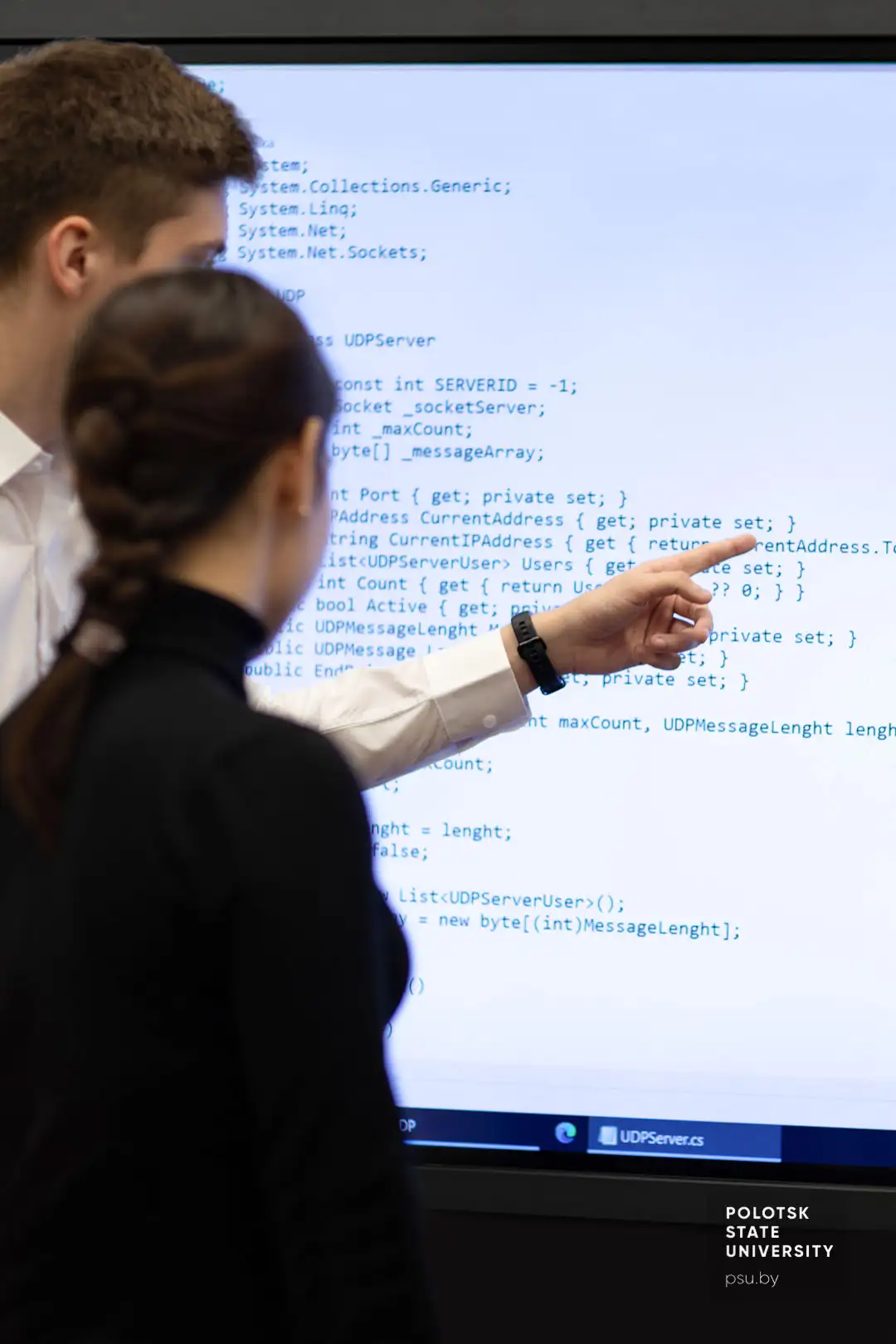Computers, systems and networks

Qualification given: system engineer
Study period: full-time – 4 years
Study period: full-time – 4 years
The IT sphere is rapidly progressing. You have to understand ins and outs of all the branches and be aware of your strengths and preferences to choose the right specialty in which you will work and improve. That’s possible when you step-by-step pass from a wide sphere of knowledge to a niche specialization. Such an approach is realized at Computers, Systems and Networks.
The specialty offers training in three main IT branches: software, hardware, and networking. The training is held stepwise, allowing you to choose a future profession consciously. During the first two years of study, students learn different IT branches. By the third year, they clearly see and understand the sphere of their future work. Majors and practical training at IT companies during the last years of study help them improve useful skills necessary for the future career.
You will learn

- to execute an algorithmization of applications for their future program description
- to develop system and application software using a cross-platform code
- to identify the necessary operation modes and evaluate the essential characteristics of computer networks
- to configure computer systems and networks for specific applications and a particular user community
- to administrate computer networks
- to synthetize computer circuits
- to develop computer systems using microprocessors
- to program and interact with peripheral devices
- to program mobile devices
- to program websites
- to use the specific software for the automated software testing
- to use version control software
- to apply system-oriented analysis on practice
You can work at ?
- IT companies
- banks and financial centres
- automation and control departments at industrial enterprises
- research institutes
- educational institutions

Majors
- Basics of Algorithmization and Programming
- PC Architecture
- Interfaces and Peripheral Devices
- High-Performance Computing (HPC)
- Introduction to Computer Networks
- Program Design and Programming Languages
- Cross-Platform Programming
- System Computer Software
- Mobile Platform Architecture
- Circuit Design
- Applied Information Theory
- Computer-oriented Programming
- Computer Structure and Functional Administration
- System Analysis
- Microprocessor-based Tools and Systems
- Databases
- Software Development and Testing Technologies
- Digital Signal and Image Processing
- Basics of Business and Law in IT
- Basics of Information Security
- Web Programming
- Mobile Device Programming
- Networks and Computer Systems Administration
- Computer Networks Hardware
- Network and Computer System Information Security
- LAN Software
- Computer Engineering Means Diagnostics